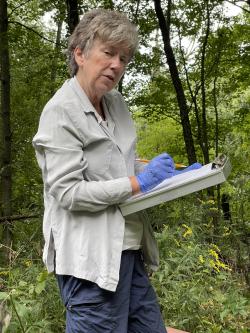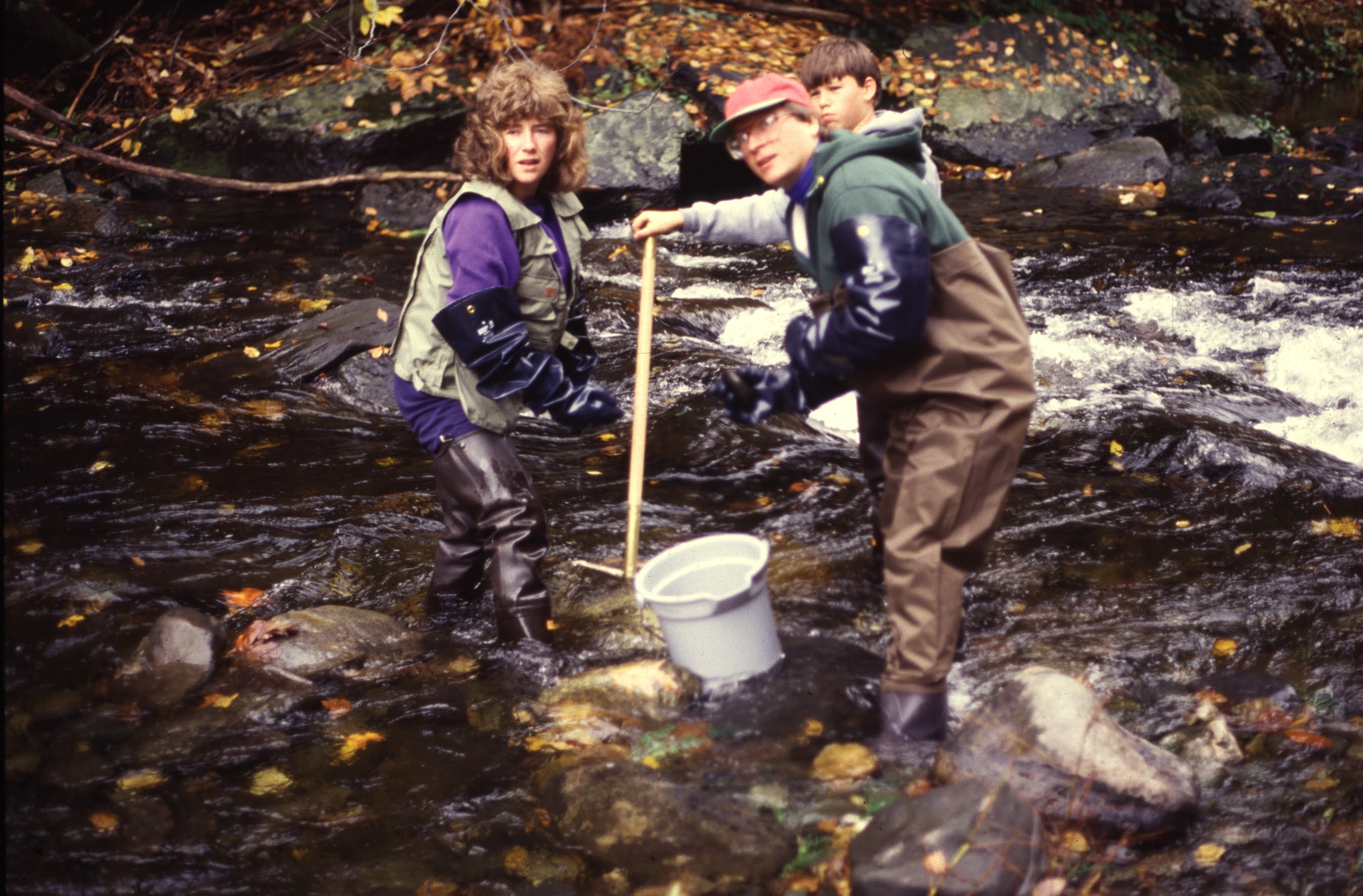
Marie-Françoise Hatte originally wanted to be a forest ranger. But around the time she would begin her university studies, the Army transferred her father from France to Ft. Benning, GA. Marie-Françoise accompanied her parents, completing her undergraduate education in the southern US, with a degree in forest management. But, as she describes it, “this was more ‘farming with trees,’ and less conservation.” Happily, during her studies she took a class in Watershed Management that inspired a lifelong passion, along with a productive and successful career.
Thirty-seven years after joining UMass, Hatte officially retired in January, though she’ll be around campus from time to time as CAFE works to fill the boots she has long occupied. We sat down with her to ask a few questions and look back on her life in and around the waterways of New England.
What’s been the most successful project during your time at the Water Resources Research Center?
The most successful has been the Acid Rain Monitoring Project, which began more than forty years ago. The project deployed citizen scientists long before it was common to do so. Anyone could be involved in taking samples or doing lab analyses. From there, the Center developed the Massachusetts Water Watch Partnership to further encourage citizens to conduct water quality monitoring programs throughout the state. The Partnership provided resources for volunteer management, as well as data collection, interpretation, and management.
Tell us about your most memorable day of field work.

While I was working at the Penn State Water Resources Research Center, I participated in several snow surveys. These were six to eight weeks long and conducted in remote locations – often involving riding a snow mobile across a frozen lake, and skiing or snow shoeing into more ecologically sensitive regions. Snow samples were collected in huge tubes, then carried in a backpack to FedEx to the lab. There was a lot of downtime, and while we were there I made my one and only quilt: a log cabin pattern.
What would you like people to understand about our local waterways?
I wish the public would understand that rivers are wild – like a wild animal – and you shouldn’t interfere with them. Getting in their way hurts them, and it hurts us even more. We see that with the floods. Everywhere people settle along rivers. We build roads. We don’t want them to flood, so, we build dikes. We push problems downstream or create problems at the site because the rivers are forced to dig deeper.
My education has been from the natural resources perspective. Engineers want to fix things, rather than taking time to understand nature. Build a dam; channelize; put up walls; make the river go this way instead of that. By contrast, we should think about things from the river’s perspective. It needs to flood every so often. So don’t separate the river from its flood plain.